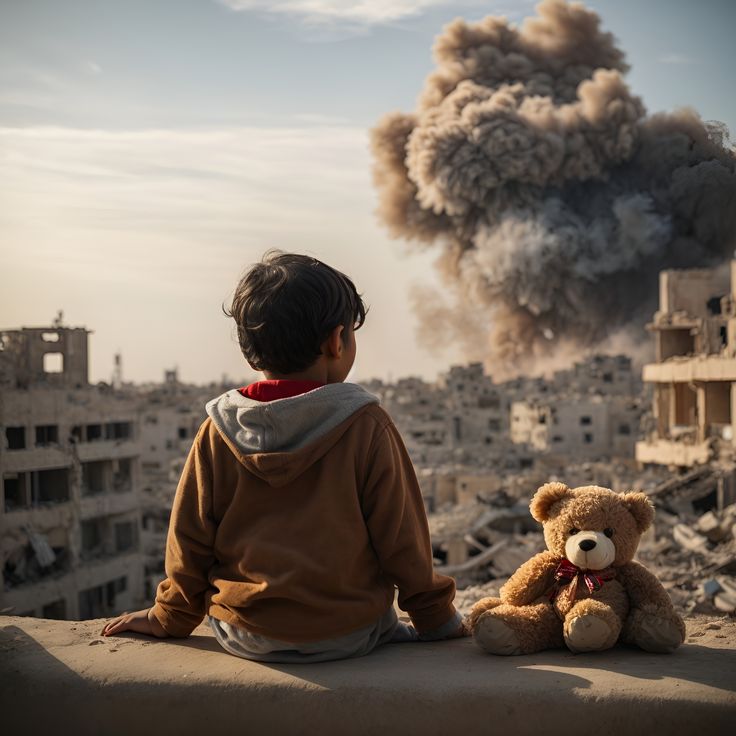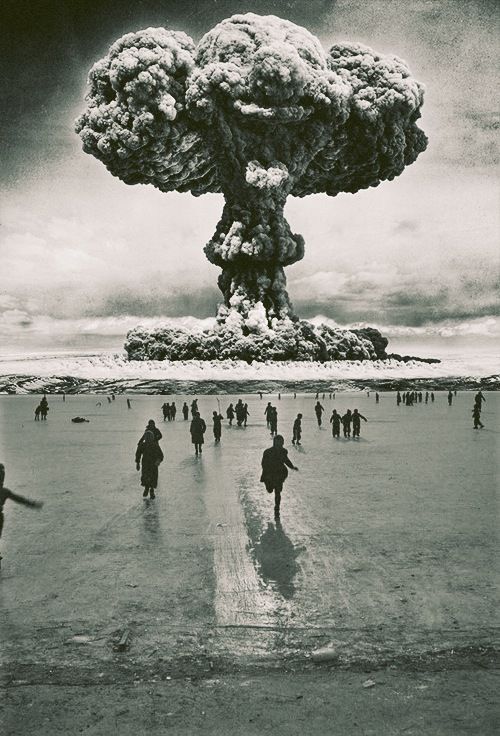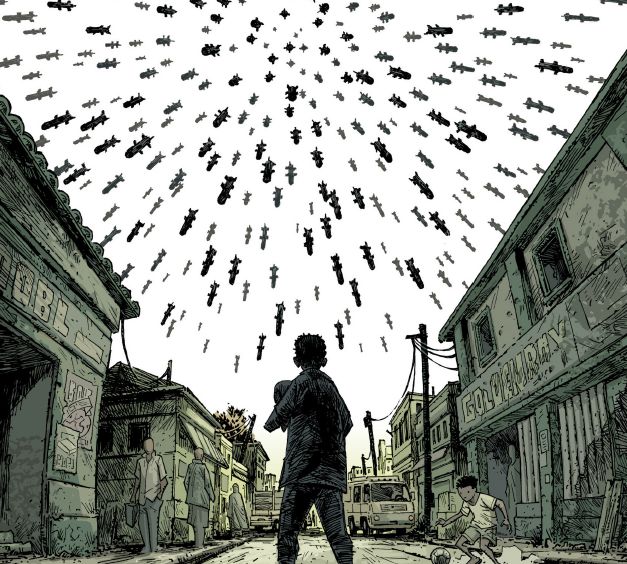War vs. Trauma
Disclaimer: While coping strategies and support networks are crucial for managing the effects of trauma, it’s important to note that violence and conflict are never desirable or acceptable options. This blog aims to provide support and guidance for those affected by the trauma of war and gun violence, but it does not endorse or condone violence in any form. We advocate for peaceful solutions to conflicts and encourage seeking help from mental health professionals and support organizations.
The Middle East has been plagued by conflicts and wars for decades, leaving a trail of destruction and profound psychological scars on its people. The toll of war extends far beyond the physical destruction of homes and communities; it deeply affects the mental health and well-being of individuals, families, and entire societies.
War inflicts various forms of trauma, leading to a range of mental health issues such as Post-Traumatic Stress Disorder (PTSD), depression, and anxiety. The constant threat of violence, loss of loved ones, and displacement can have long-lasting effects on the psyche of those living in conflict zones.
Importance of Addressing Trauma & Seeking Help
Addressing the trauma of war is crucial for the recovery and rebuilding of communities in the Middle East or any part of the world that goes through such turmoil. Ignoring or suppressing the psychological wounds can lead to further suffering and hinder the prospects of peace and stability in the region.
Despite the challenges, individuals affected by war need to seek help and support. Through counseling, therapy, and community programs, individuals can learn to cope with their trauma and regain a sense of normalcy in their lives.
Understanding Trauma in the Context of War

Trauma, in the context of war, refers to the emotional response to a distressing or life-threatening event experienced or witnessed during conflict.
Post-Traumatic Stress Disorder (PTSD): PTSD is a common psychological disorder that can develop after experiencing a traumatic event. Symptoms may include flashbacks, nightmares, severe anxiety, and uncontrollable thoughts about the event.
Depression and Anxiety: The ongoing stress and fear experienced during war can lead to depression and anxiety disorders. These conditions can significantly impact an individual’s daily life, making it difficult to function normally.
Survivor’s Guilt: Individuals who survive a traumatic event may experience feelings of guilt or shame for surviving when others did not. This can lead to significant emotional distress and a sense of isolation.
Loss and Grief: War often results in the loss of loved ones, homes, and communities. The grief experienced from these losses can be overwhelming and long-lasting.
Specific Challenges Faced by Individuals in War-Torn Regions
Constant Threat of Violence: Living in a war zone means being constantly exposed to the threat of violence and death. This can create a pervasive sense of fear and anxiety.
Displacement and Loss of Community: Many individuals in war-torn regions are forced to flee their homes, leading to displacement and the loss of their community and support networks. This can contribute to feelings of isolation and loneliness.
Lack of Access to Mental Health Services: In many war-affected areas, mental health services are limited or non-existent. This makes it difficult for individuals to seek help for their trauma and mental health issues.
Stigma Surrounding Mental Health: There is often a stigma attached to mental health issues in many Middle Eastern cultures. This stigma can prevent individuals from seeking help and lead to feelings of shame or embarrassment.
Personal Stories

Real-life Examples of Individuals Coping with Trauma in the Middle EastLayla’s Story: Layla, a young woman living in Syria, experienced the horrors of war firsthand when her home was destroyed in a bombing. Despite losing her home and family members, Layla has shown remarkable resilience. Through counseling and support from her community, Layla has learned to cope with her trauma and has even become an advocate for mental health awareness in her community.
Ahmed’s Journey: Ahmed, a former soldier in Iraq, struggled with PTSD after witnessing the violence of war. Initially reluctant to seek help due to the stigma surrounding mental health, Ahmed eventually sought counseling and support. With the help of therapy and the support of his family, Ahmed has been able to manage his PTSD and is now helping other veterans in his community.
Nadia’s Resilience: Nadia, a Palestinian refugee living in Lebanon, has faced numerous challenges as a result of war and displacement. Despite the hardships, Nadia has shown incredible resilience. Through participating in support groups and engaging in creative outlets like art therapy, Nadia has found ways to cope with her trauma and rebuild her life.
These stories highlight the resilience and strength of individuals in the Middle East who have faced the trauma of war. They serve as examples of how seeking help and building support networks can help individuals cope with the psychological effects of war.Individuals affected by trauma must seek help and support. By breaking the stigma surrounding mental health, individuals can access the care they need to heal. Seeking help is not a sign of weakness but a courageous step toward healing and recovery.
Hope for Healing and Rebuilding Communities
Despite the challenges, there is hope for healing and rebuilding communities in the Middle East. Through counseling, therapy, and community support programs, individuals can learn to cope with their trauma and rebuild their lives. By working together, communities can create a supportive environment that fosters healing and resilience.
Additional Resources
- The Arab Foundation for Freedoms and Equality (AFE): AFE offers mental health support for LGBTQ+ individuals in the Middle East. https://afemena.org/
- Mental Health Foundation Lebanon: Provides mental health services and support for individuals in Lebanon. https://www.moph.gov.lb/en/Pages/0/8872/about-the-national-mental-health-program#:~:text=The%20National%20Mental%20Health%20Programme,beyond%20medical%20treatment%20at%20the
- Syrian Arab Red Crescent (SARC): Offers mental health and psychosocial support for those affected by the conflict in Syria. https://sarc.sy/home/
- Mental Health Department of the Ministry of Health in Jordan: Provides mental health services and support for individuals in Jordan. https://www.mhinnovation.net/innovations/mental-health-system-reform-jordan#:~:text=Led%20by%20the%20Ministry%20of,and%20protects%20their%20human%20rights.
“WAR is never the answer. My heart goes out to all those who have lost their loved ones. Let’s strive for PEACE, UNDERSTANDING, even in the face of CONFLICT.”

Thank you for the nice blog! You made excellent points through solution journalism highlighting the resilience and perseverance of those affected by war. By shining a light on the hope, strength, and gratitude that can emerge even in the darkest of circumstances, these stories serve as an inspiration. They remind us of the depths of the human spirit and our ability to overcome tremendous adversity. Ultimately, such journalism leaves us with a renewed appreciation for the lives we lead and a fervent wish for lasting peace around the globe. Well-crafted storytelling of this nature has the power to open hearts, minds, and a dialogue towards positive change.